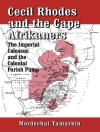In this groundbreaking book, Ilham Khuri-Makdisi establishes the existence of a special radical trajectory spanning four continents and linking Beirut, Cairo, and Alexandria between 1860 and 1914. She shows that socialist and anarchist ideas were regularly discussed, disseminated, and reworked among intellectuals, workers, dramatists, Egyptians, Ottoman Syrians, ethnic Italians, Greeks, and many others in these cities. In situating the Middle East within the context of world history, Khuri-Makdisi challenges nationalist and elite narratives of Mediterranean and Middle Eastern history as well as Eurocentric ideas about global radical movements. The book demonstrates that these radical trajectories played a fundamental role in shaping societies throughout the world and offers a powerful rethinking of Ottoman intellectual and social history.
विषयसूची
Acknowledgments
Introduction
1. The Late Nineteenth-century World and the Emergence of a Global Radical Culture
2. The Nah.a, the Press, and the Construction and Dissemination of a Radical Worldview
3. Theater and Radical Politics in Beirut, Cairo, and Alexandria 1860–1914
4. The Construction of Two Radical Networks in Beirut and Alexandria
5. Workers, Labor Unrest, and the Formulation and Dissemination of Radical Leftist Ideas
Conclusion: Deprovincializing the Eastern Mediterranean
Appendix
Notes
Bibliography
Index
लेखक के बारे में
Ilham Khuri-Makdisi is Assistant Professor of History and Middle Eastern Studies at Northeastern University.












